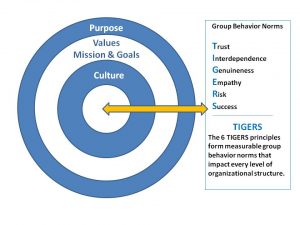
Embracing, rather than resisting change is difficult for many people. However, when you have no control over change, a positive attitude goes a long way in making change transitions easier. This is why using your mentorship resources is so important.
Change initiatives usually include a plan that has been laid out by leaders. Therefore, it’s helpful to look to these leaders to guide you on how to adapt to the situation. In other circumstances, you may be initiating a change for yourself. If you do not already have a plan in place, you will need to create one. This is where mentorship proves invaluable.
What is Mentorship?
A mentor is someone with greater knowledge and expertise than you possess in an area that you are interested in. Because they already know the ins and outs of your desired change, the practice of sharing valuable insights is what mentorship is all about. The mentor’s experience and knowledge help you to not reinvent the wheel through trial and error. By learning from someone who has travelled the same road before you, you save yourself wasted time and effort by pursing those best practices that you find most promising. The following are two strategies to make mentorship work for you.
Focus on building genuine mentorship relationships.

In good mentorship, open and truthful communication and motives are required. Without genuineness, others may question your sincerity and reasoning. For example, a mentor may question your motives. This is especially true in internally competitive organizations where a realistic fear is — “If I help you, you will use what you learn from me to take my position.”
In building a solid mentorship relationship, sincere, frank and forthright communication and follow through are required. This takes personal integrity. When personal integrity is involved, everyone experiences less stress than those who do not bring integrity to the table, says Genuineness and Trust Build Strong Communication. As a result, mentorships have a greater capacity for creativity, commitment and happiness. This enhances both relationships and mentorship positions. When both the mentor and mentee appreciate the relationship with honesty, genuine and authentic relationships form.
In mentorship, know your strengths and weaknesses.
One of the best reasons to foster a mentor-mentee relationship is to learn strategies to improve weaknesses. You can’t always be strong in all of the areas that are required of your desired profession. One of the most effective ways to improve a weakness is to seek guidance from someone who is strong in that area that you are undeveloped.
Therefore, utilize mentorship expertise to improve your own skills. Then view the relationship as reciprocal. Be willing to help others when they need it. Become a mentor yourself.
Mentorship summary.
Times of change and transition are unavoidable facts of life. The more you resist change, the harder you make things for yourself.
Sometimes change is brought on by someone else. Other times you decide to make a transition for yourself. Examples include changing positions, jobs or even careers.
No matter the reason for the change, embrace it and know that mentorship makes change easier. A mentor is someone with greater knowledge and expertise in an area that you are interested in. They provide sound counsel when you are making tough decisions.
To foster successful mentorship:
- Focus on building genuine and authentic relationships.
- Know your own strengths and weaknesses.
- Build reciprocity.
Mentors are valuable for professional growth and should be respected as such.
Care to dig deeper into this mentorship conversation?
We found the following helpful in adding to the conversation:
- How to Build Your Mentor Cabinet: 4 Tactics
- Genuineness and Trust Build Strong Communication
- Engaging Employees to Champion Change
Copyright TIGERS Success Series, Inc. by Jennifer Zimmerman
About TIGERS Success Series Group Norm Facilitator Training

Call 1-877-538-2822 US or 1-541-385-7465 international to inquire.